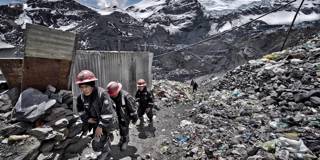OnPoint Subscriber Exclusive
Longer Reads provide in-depth analysis of the ideas and forces shaping politics, economics, international affairs, and more.

The Developing World Has an Alternative to Debt
Before rushing into another round of borrowing, developing countries should consider another option that has long been staring them in the face. By taking the steps needed to connect untapped sources of wealth to the global economy, the developing world can finally start to accumulate capital instead of liabilities.
LIMA – Faced with the effects of the COVID-19 pandemic, emerging and developing economies have been taking on massive debt backed by no more than governments’ future ability to tax their citizens directly, or to tax them indirectly by inflating away the debt’s value. Already, the International Monetary Fund and sovereign bond markets have provided tens of billions of dollars in emergency financial assistance and debt relief to member states across Latin America, Africa, the Middle East, and South Asia.